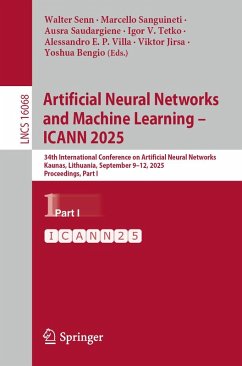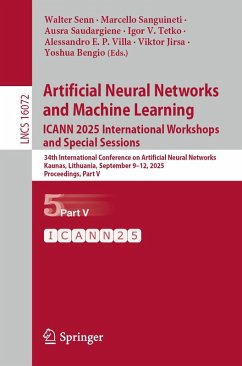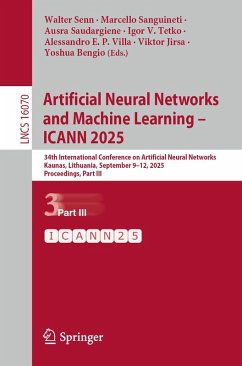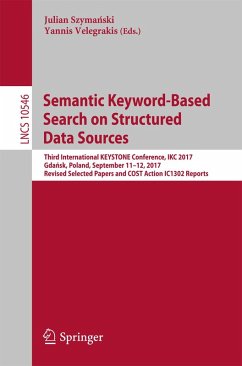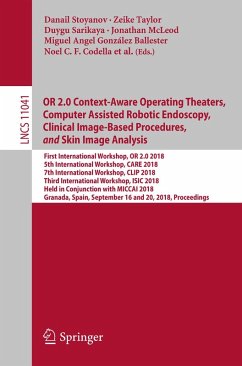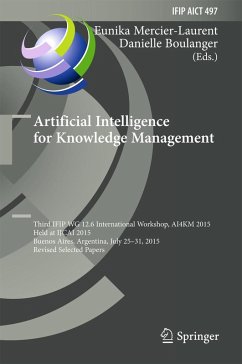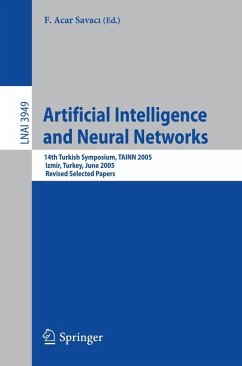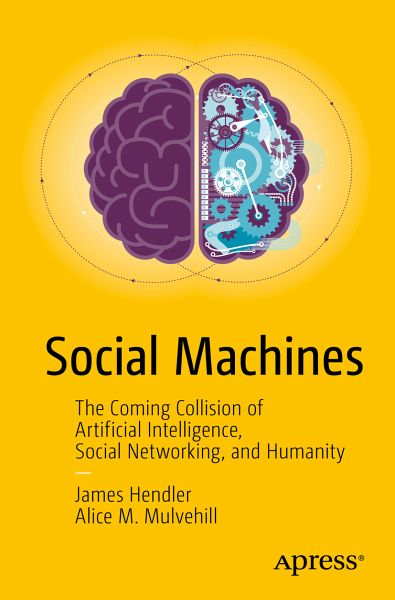
Social Machines (eBook, PDF)
The Coming Collision of Artificial Intelligence, Social Networking, and Humanity

PAYBACK Punkte
13 °P sammeln!
Will your next doctor be a human being-or a machine? Will you have a choice? If you do, what should you know before making it?This book introduces the reader to the pitfalls and promises of artificial intelligence (AI) in its modern incarnation and the growing trend of systems to "reach off the Web" into the real world. The convergence of AI, social networking, and modern computing is creating an historic inflection point in the partnership between human beings and machines with potentially profound impacts on the future not only of computing but of our world and species.AI experts and researc...
Will your next doctor be a human being-or a machine? Will you have a choice? If you do, what should you know before making it?
This book introduces the reader to the pitfalls and promises of artificial intelligence (AI) in its modern incarnation and the growing trend of systems to "reach off the Web" into the real world. The convergence of AI, social networking, and modern computing is creating an historic inflection point in the partnership between human beings and machines with potentially profound impacts on the future not only of computing but of our world and species.
AI experts and researchers James Hendler-co-originator of the Semantic Web (Web 3.0)-and Alice Mulvehill-developer of AI-based operational systems for DARPA, the Air Force, and NASA-explore the social implications of AI systems in the context of a close examination of the technologies that make them possible. The authors critically evaluate the utopian claims and dystopian counterclaimsof AI prognosticators.
Social Machines: The Coming Collision of Artificial Intelligence, Social Networking, and Humanity is your richly illustrated field guide to the future of your machine-mediated relationships with other human beings and with increasingly intelligent machines.
What Readers Will Learn
- What the concept of a social machine is and how the activities of non-programmers are contributing to machine intelligence
- How modern artificial intelligence technologies, such as Watson, are evolving and how they process knowledge from both carefully produced information (such as Wikipedia and journal articles) and from big data collections
- The fundamentals of neuromorphic computing, knowledge graph search, and linked data, as well as the basic technology concepts that underlie networking applications such as Facebook and Twitter
- How the change in attitudes towards cooperative work on the Web, especially in the younger demographic, is critical to the future of Web applications
General readers and technically engaged developers, entrepreneurs, and technologists interested in the threats and promises of the accelerating convergence of artificial intelligence with social networks and mobile web technologies.
Dieser Download kann aus rechtlichen Gründen nur mit Rechnungsadresse in A, B, BG, CY, CZ, D, DK, EW, E, FIN, F, GR, HR, H, IRL, I, LT, L, LR, M, NL, PL, P, R, S, SLO, SK ausgeliefert werden.
Alle Preise in Euro und inkl. der gesetzl. MwSt. | Innerhalb Deutschlands liefern wir preisgebundene Bücher versandkostenfrei. Weitere Informationen: bitte hier klicken
Support
Bitte wähle dein Anliegen aus:
Rechnungen
Bestellstatus
Retourenschein
Storno



